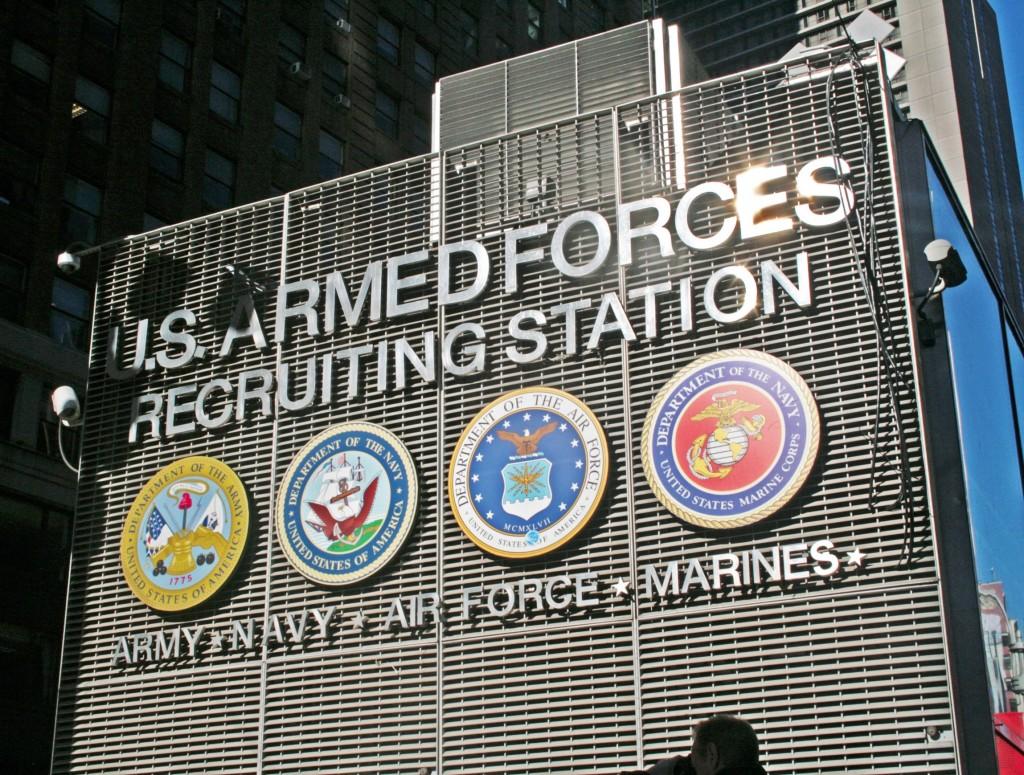Economic Downturn Makes ROTC More Appealing to Struggling Students
June 4, 2011

Published: October 30, 2008
With a soaring cost of higher education and a rising unemployment rate, the benefits offered by the ROTC may cause more students to enroll in the program. Capt. Richard Gomez, recruiting operations officer for the New York City branch of the Reserves Officer Training Corps, said that he expects more students to turn to ROTC as the economy continues to struggle. “When the economy takes a downturn, ROTC enrollment tends to grow,” he said.
The enrollment numbers for ROTC provided by Powell show a steady increase in the past five years. In 2004, the New York City branch of the ROTC, which is housed at Fordham’s Rose Hill campus, had 92 participants. By the 2008 school year, the number grew to 114; today the number stands at 160.
The current unemployment rate, 6.1 percent in September, has grown nearly 30 percent since the same month in 2007, according to the U.S. Department of Labor. The cost of college continues to increase as well; according to the College Board, the average annual tuition for a private university stands at $23,712, up 6.3 percent from last year.
According to Lt. Col. Randy Powell, professor of military science at Fordham and chair of the New York City ROTC, members are eligible for full tuition scholarships as long as they meet the proper physical and medical requirements and maintain at least a 2.0 GPA. Students are also given a $600 credit for books each year, as well as a gradually increasing monthly stipend ranging from $350 to $550.
Students who receive four- or three-year scholarships (those who join in their freshman or sophomore years) also receive free housing from Fordham.
Despite the struggling economy, funding has increased for ROTC programs. According to Powell, the army has increased the amount of money available to ROTC members. “[The army is] throwing more money to scholarships. Four years ago, nine students were on a full four-year scholarship. Today, there are 30.” He continued, “The army is growing… it needs to produce more officers.”
According to the U.S. Army Web site, the ROTC is a program commissioned by the United States military that pays for students’ education in return for military service. The program integrates military science courses into a student’s regular class schedule, and students are commissioned as an officer upon graduation. Though anyone who meets specific health and physical requirements can join the program, scholarships are only available to students who commit to four years of active duty. “For many the benefits are well worth the commitment,” Powell said.
Powell also said that only time will tell if and how much the current economic situation is impacting enrollment. “I expect to see the impact of the economy on enrollment in the next six to eight months,” Powell said. “I have not specifically had Cadets or prospects say they were joining due to the economy… [though] we may see that impact in the future.”
Cliff Evans, Fordham College at Rose Hill (FCRH) ’08, cited the financial incentives as a large benefit of the program. “I joined my freshman year with no commitment and no scholarship, but I decided that I wanted to stay in and serve in the Army,” Evans said.
“My ROTC scholarship paid for three years of college and it covered everything,” Evans said. “[Beceause I joined ROTC], my financial situation is significantly better. I only had to pay for one year of college, and as a result, I never took out student loans. I also have a job that I started working less than a week after I graduated, [and] a lot of my friends still haven’t found jobs yet.”
Aside from just the financial motivations, Powell attributed many other factors to the steady increase in enrollment. “Fordham’s increased population and popularity alone contribute to higher enrollment rates,” Powell said. “When I started this job, I thought recruiting would be hard. But people continue to have a desire to serve.”
Evans echoed this sentiment. “Aside from the money, ROTC developed my leadership, planning, and communication skills. I’d like to think that it made me a better person.” He continued, “[ROTC is] an opportunity for me to serve my country, and I’m glad I’ve done it.”
Daniel Friedman, FCRH ’09, also cited a genuine desire to serve his country as a reason for joining the ROTC. “I personally joined for the leadership opportunities that are unparalleled in the civilian workforce at our age, and to serve during this critical time in our history,” Friedman said. He continued, “As with any vocation, members of ROTC have many different reasons for joining. Some may be motivated by a strong desire to serve their country, while others may have more pressing financial concerns.”












